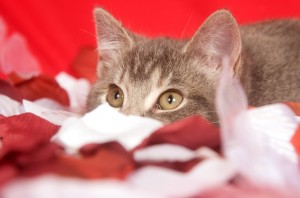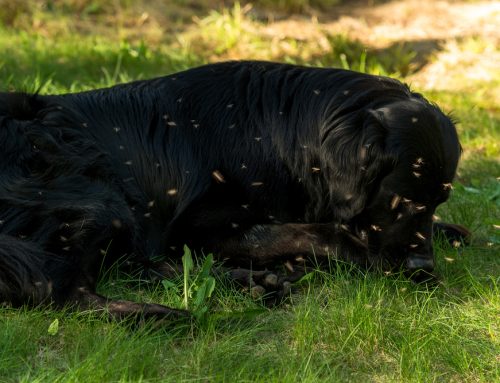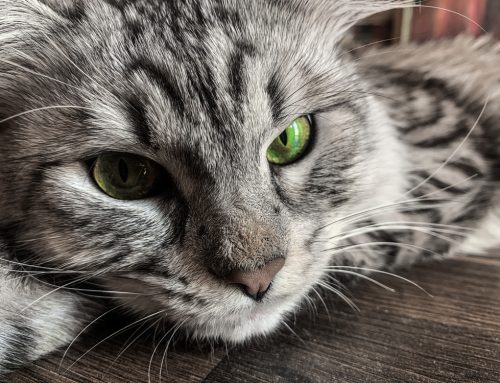 For many of us, nothing is better than getting flowers, chocolates and those kitschy conversation hearts from our sweetheart on Valentine’s Day. But sadly, many of the iconic Valentines Day offerings we give and receive on February 14 can be harmful to our beloved pets.
For many of us, nothing is better than getting flowers, chocolates and those kitschy conversation hearts from our sweetheart on Valentine’s Day. But sadly, many of the iconic Valentines Day offerings we give and receive on February 14 can be harmful to our beloved pets.
Chocolate, artificial sweeteners (Xylitol in particular), and many flowers have toxic properties that can wreak havoc on our pet’s internal systems. This toxicity can cause immediate discomfort and distress on your pet, and possibly result in long-term or fatal consequences.
As you give and receive this Valentine’s Day, keep the following cautions in mind and keep these gifts well out of your pet’s reach. Or, perhaps, use this as an excuse to try a new approach to Valentine’s this day, and give gifts that are safe for everyone. Here are our Valentine’s Day pet safety tips…
Chocolate
That box of chocolates is a traditional Valentine’s symbol, but it’s a definite no-no when it comes to pets. If you’re giving or receiving these goodies this year, don’t share and keep them away from curious critters. Here’s why:
-
Chocolate contains theobromine, which acts as a stimulant resulting in effects on the heart and nervous systems.
-
The severity of symptoms depends on the size of the pet, the amount of chocolate ingested, and the type of chocolate.
-
White chocolate has the least amount of theobromine, with milk, dark, and baking chocolate having increasing concentrations.
-
Lower doses of theobromine might result in vomiting and/or diarrhea, but higher doses can cause seizures and fatal heart arrhythmias.
-
The high fat content of some chocolate can also cause inflammation of the pancreas, which can be very serious.
Xylitol
Increasing in popularity, this artificial sweetener is found in many candies, gums, and baked goods, without you ever knowing it’s there. Often Xylitol-laden products will often be marked “sugar-free,” but not always. Here’s what to know about Xylitol:
-
Dogs (and potentially cats) absorb this sweetener much more quickly than do people, resulting in a large release of insulin by the pancreas. This causes a life-threatening plunge in blood sugar levels.
-
Xylitol may also cause liver failure in some pets.
Flowers
Many plants are toxic to animals when ingested, especially the ones we often love to give those we adore. Before picking out these pretty flowers, or putting that gorgeous bouquet in a vase, be sure there aren’t dangers lurking. You never know when a curious pet might take a taste.
-
Lilies are perhaps one of the more dangerous flowers. Ingestion of even a small amount can cause kidney failure in cats.
-
Nibbling on tulips, peonies, daffodils and baby’s breath can cause digestive upset.
-
There is no evidence that the traditional Valentine’s flower, the rose, is toxic. It is important to remember that ingestion of any plant can cause mild stomach upset. Thorns are also a potential cause of injury.
-
When in doubt, check the ASPCA’s list of toxic and non-toxic plants or just keep flowers in a location your pets do not have access to.
The Little Things
It’s also important to keep in mind that tissue paper, confetti, and other little baubles and notions can be easily ingested by pets with disastrous results. It doesn’t take much to cause an intestinal obstruction, ultimately causing a night to remember for all the wrong reasons.
Likewise, don’t let you pet finish off your champagne, wine, beer or liquor after your evening has faded. Alcohol and pets do not mix well, and caution should be taken to keep all spirits away from pets.
However you spend February 14, we hope that you enjoy the day and remember that, as a pet owner, your heart is never lonely with your furry friend at your side.






